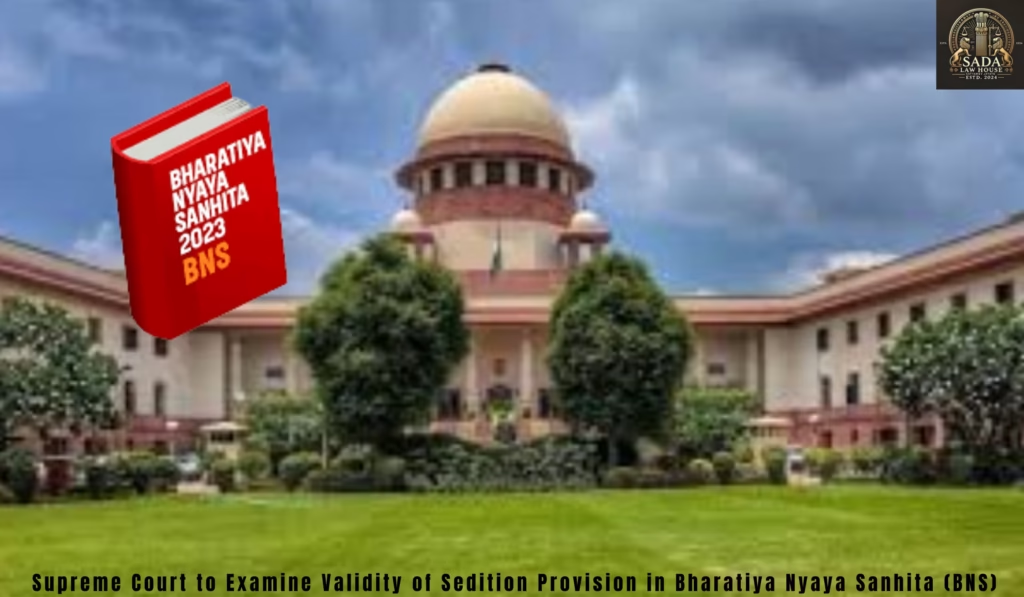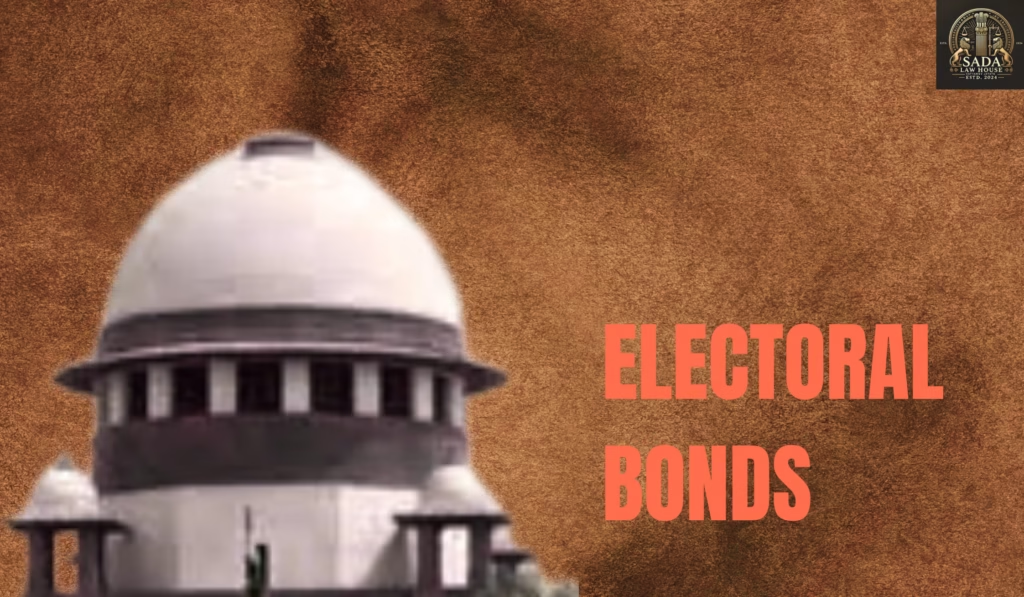Supreme Court to Review Sedition-like Provision in Bharatiya Nyaya Sanhita (BNS)
Trending Today Supreme Court to Review Sedition-like Provision in Bharatiya Nyaya Sanhita (BNS) Nagpur Bench of Bombay High Court Empowers Senior Citizens: Lawyers Allowed in Maintenance Tribunals Supreme Court to Hear Fresh Plea on Electoral Bonds Transparency Chirag Paswan’s LJP-R Joins NDA Strategy Meeting Ahead of Bihar Assembly Elections Election Commission of India Delists 334 Unrecognised Political Parties Across the Country JOB OPPORTUNITY AT DENTONS LINK LEGAL, MUMBAI JOB OPPORTUNITY AT MZM LEGAL LLP, MUMBAI INTERNSHIP OPPORTUNITY AT THE YUVACRACY CENTRE FOR POLICY RESEARCH JOB OPPORTUNITY AT LAW OFFICE OF AARUSHI S. DESAI, AHMEDABAD LEGAL JOB OPPORTUNITY AT LEAD INDIA Supreme Court to Review Sedition-like Provision in Bharatiya Nyaya Sanhita (BNS) Shristi singh 10 AUG 2025 The Supreme Court of India will hear a constitutional challenge to Section 152 of the Bharatiya Nyaya Sanhita, 2023, alleged to be a repackaged sedition law. Petitioners argue it infringes free speech under Article 19(1)(a) and revives a colonial-era offence under a new name. A Significant Constitutional Challenge On August 9, 2025, the Supreme Court of India admitted petitions questioning the validity of Section 152 of the Bharatiya Nyaya Sanhita, 2023 (BNS). The section mirrors the repealed Section 124A of the Indian Penal Code — the colonial-era sedition law that the Court had effectively suspended in 2022 due to concerns of misuse. Petitioners — including journalists, rights activists, and legal scholars — allege that Parliament has repackaged sedition into the new criminal code, undermining constitutional liberties. What Is the Case About? The BNS replaced the IPC in July 2024, with the government claiming it modernized India’s criminal laws. However, Section 152 criminalizes acts or speech that “endanger the sovereignty, unity, and integrity of India” — punishable by life imprisonment or up to seven years in prison. Petitioners argue: The language is nearly identical to the old sedition law. It grants sweeping powers to authorities without safeguards. It risks being abused to silence government critics. It violates Article 19(1)(a) (freedom of speech) and fails the “reasonable restrictions” test in Article 19(2). They also invoke the doctrine of colourable legislation, claiming Parliament cannot bypass judicial scrutiny by re-enacting a struck-down law under a different title. Court’s Stand: ‘Fundamental Rights Cannot Be Revived Under a New Name’ The Supreme Court issued notice to the Union Government and tagged the case with other pending sedition challenges. Observing that the matter concerns Articles 19(1)(a) and 21 (right to life and personal liberty), the Court signaled a detailed constitutional review. The petitioners referenced the Court’s 2022 interim order that kept sedition cases in abeyance, arguing the same principle should apply to Section 152 BNS, as both provisions share the same core prohibitions. “The legislature, in trying to evade constitutional scrutiny, has merely renamed and relocated sedition in the BNS. The chilling effect on free speech remains unchanged,” the petition stated. Potential Impacts of the Ruling Strengthening Free Speech: Striking down or narrowing Section 152 could set a powerful precedent safeguarding dissent. Defining Legislative Limits: It could reaffirm that Parliament cannot reintroduce unconstitutional provisions through new statutes. Effect on Pending Cases: The verdict may influence how both past IPC sedition cases and new BNS prosecutions are handled. Why This Judgment Will Matter 1. Protecting Fundamental Rights It ensures outdated colonial offences cannot be rebranded to suppress democratic freedoms. 2. Judicial Oversight of Legislation It reinforces that constitutional supremacy prevents Parliament from legislating around judicial review. A Larger Constitutional Moment The case goes beyond legal technicalities — it may determine the scope of political dissent in modern India. As the Court’s proceedings unfold, it will send a clear message: justice must evolve with the Constitution, not cling to outdated laws. Leave a Reply Cancel Reply Logged in as Sadalaw. Edit your profile. Log out? Required fields are marked * Message* Live Cases Supreme Court to Review Sedition-like Provision in Bharatiya Nyaya Sanhita (BNS) Sadalaw • August 10, 2025 • Live cases • No Comments Nagpur Bench of Bombay High Court Empowers Senior Citizens: Lawyers Allowed in Maintenance Tribunals Sadalaw • August 10, 2025 • Live cases • No Comments Supreme Court to Hear Fresh Plea on Electoral Bonds Transparency Sadalaw • August 10, 2025 • Live cases • No Comments 1 2 3 … 5 Next »
Supreme Court to Review Sedition-like Provision in Bharatiya Nyaya Sanhita (BNS) Read More »








